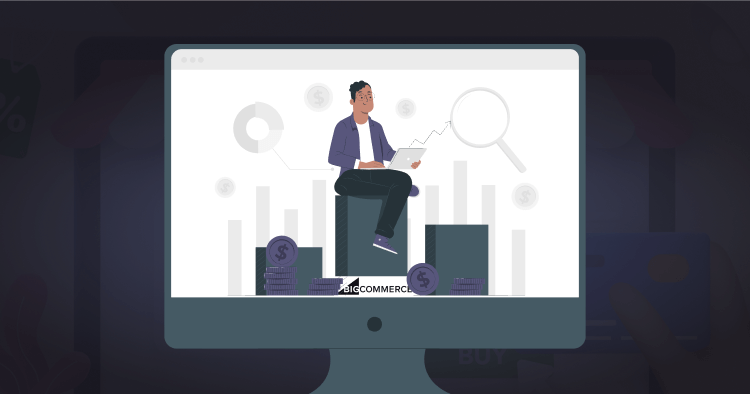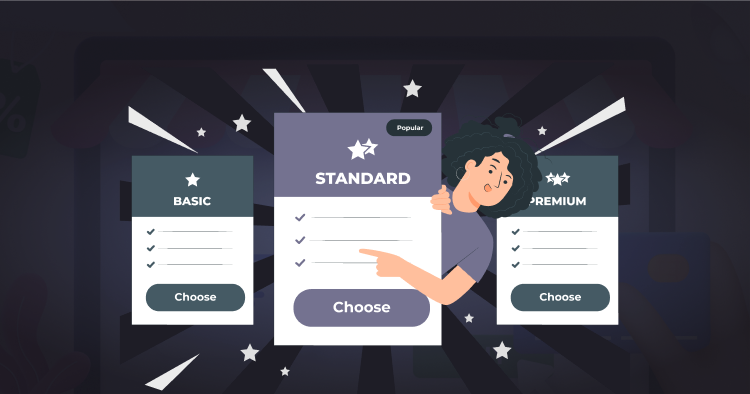Your osCommerce store is struggling to keep up with modern e-commerce demands. The platform’s outdated architecture, limited mobile responsiveness, and lack of native integrations are costing you sales and operational efficiency. If you’re experiencing slow page loads, security vulnerabilities, or spending too much time on manual updates, migrating to BigCommerce offers a clear path forward with enterprise-grade features, built-in scalability, and modern commerce capabilities.
This guide walks you through the complete osCommerce to BigCommerce migration process, from pre-migration planning and data transfer methods to post-launch optimization. You’ll understand exactly what to prepare, which migration approach fits your business, and how to avoid common pitfalls that derail transitions.
Summary
- Pre-migration preparation covers data auditing, backup procedures, and creating a detailed migration checklist to minimize downtime
- Migration methods comparison explains automated tools, manual migration, and professional services with cost and complexity breakdowns
- Data transfer strategies detail how to migrate products, customers, orders, and preserve SEO equity through proper URL mapping
- Testing protocols outline functionality checks, payment gateway verification, and performance benchmarking before going live
- Post-migration optimization focuses on configuring BigCommerce features, improving site speed, and implementing conversion optimization tactics
Why Migrate from osCommerce to BigCommerce
osCommerce served businesses well for years, but the platform’s core limitations now create significant barriers to growth. The system requires constant manual updates, lacks responsive mobile design out of the box, and offers minimal native payment gateway integrations. Security patches demand technical expertise, and the absence of cloud hosting means you’re responsible for server management and uptime.
BigCommerce eliminates these operational burdens with a fully hosted SaaS solution. You gain access to over 65 pre-integrated payment gateways, mobile-responsive themes that convert across devices, and automatic security updates. The platform handles PCI compliance, scales server resources automatically during traffic spikes, and provides built-in SEO features that osCommerce requires third-party extensions to achieve.
Modern commerce capabilities set BigCommerce apart. Multi-channel selling lets you sync inventory across Amazon, eBay, Facebook, and Instagram from one dashboard. Advanced product options support complex configurations without custom coding. The platform’s API-first architecture enables headless commerce implementations when you’re ready to separate frontend experiences from backend commerce logic.
Now that we’ve established why migration makes business sense, let’s examine what you need to prepare before starting the transition.
Pre-Migration Planning and Preparation
Audit Your Current Store Data
Start by documenting exactly what needs to migrate. Export your complete product catalog including SKUs, descriptions, pricing tiers, and inventory levels. Review customer records for accurate email addresses, purchase history, and shipping preferences. Identify which orders need historical reference and which can be archived post-migration.
Clean your data before migration. Remove duplicate customer entries, outdated products, and abandoned test orders. Update product images to meet BigCommerce’s recommended dimensions. Verify that category structures make logical sense for your current catalog size.
Create Comprehensive Backups
Generate complete database backups of your osCommerce installation. Download all product images, customer files, and custom code modifications. Store backups in multiple locations including local drives and cloud storage. Document your current hosting configuration, PHP version, and MySQL database structure.
Test backup restoration on a development server to confirm data integrity. This verification step prevents discovering corrupted backups mid-migration when recovery becomes critical.
Map Migration Requirements
| Migration Component | Action Required | Priority Level |
| Product catalog (500+ SKUs) | Clean data, update images, verify pricing | High |
| Customer accounts (2,000+) | Remove duplicates, validate emails | High |
| Order history (3 years) | Archive old orders, migrate recent transactions | Medium |
| SEO URLs | Create 301 redirect map | Critical |
Document your custom functionality. List payment gateway integrations, shipping calculators, and third-party extensions. Determine which features BigCommerce handles natively and which require app installations or custom development.
With preparation complete, you’re ready to evaluate which migration method suits your technical resources and timeline.
osCommerce to BigCommerce Migration Methods
Automated Migration Tools
Cart2Cart and LitExtension offer automated osCommerce to BigCommerce migration services. These platforms connect to both stores via API, transfer data automatically, and provide mapping interfaces for category structures and product attributes. Pricing typically ranges from $69 for basic migrations to $500+ for stores with extensive customization.
The automated approach works best for straightforward migrations under 5,000 products with standard osCommerce configurations. You’ll need FTP access to your osCommerce installation and admin credentials for both platforms. Migration time averages 2-4 hours for medium-sized catalogs, though custom field mapping extends timelines.
Limitations include restricted control over data transformation and potential issues with heavily customized osCommerce builds. These tools handle standard entities well but struggle with unique database modifications or non-standard extension data.
Manual Migration Process
Manual migration gives complete control over data structure and field mapping. Export osCommerce data as CSV files, transform information using spreadsheet tools, then import formatted files into BigCommerce. This method requires technical competency with database exports and CSV manipulation.
The manual approach suits stores under 1,000 SKUs where data needs significant cleaning or restructuring. You’ll spend 40-80 hours on a medium complexity migration, but gain precise control over how information transfers. Budget additional time for testing imports and fixing data formatting errors.
Professional Migration Services
Enterprise-level migrations benefit from professional services that handle technical complexity end-to-end. BigCommerce development agencies manage data migration, custom feature replication, theme configuration, and quality assurance testing. Costs range from $5,000 to $50,000+ depending on catalog size and customization depth.
Professional services make sense when your osCommerce store includes custom modules, complex product configurations, or integration requirements that exceed standard migration tool capabilities. Expert teams reduce downtime risk and accelerate time to launch.
| Method | Best For | Timeline | Cost Range |
| Automated tools | Standard stores (<5K SKUs) | 2-4 hours | $69-$500 |
| Manual migration | Small stores needing cleanup | 40-80 hours | Time investment |
| Professional services | Complex/enterprise stores | 4-12 weeks | $5K-$50K+ |
Understanding migration methods prepares you for the detailed data transfer process, which we’ll break down by entity type.
Step-by-Step Data Migration Process
Migrating Product Catalog
Begin with product categories to establish your store’s navigation structure. Create category hierarchies in BigCommerce matching your osCommerce organization or restructuring for improved customer experience. Configure category descriptions and SEO metadata before importing products.
Product imports require properly formatted CSV files with required BigCommerce fields. Map osCommerce product fields to BigCommerce equivalents: product name, SKU, price, weight, dimensions, and inventory quantity. Handle product variants by creating option sets in BigCommerce, then mapping osCommerce variation data to the appropriate option combinations.
Upload product images after importing product data. BigCommerce accepts multiple images per product and supports zoom functionality natively. Optimize images to 1200×1200 pixels for best display quality across devices. Configure image alt text during upload to preserve SEO value.
Transferring Customer Data
Export customer information from osCommerce including email addresses, names, phone numbers, and saved addresses. BigCommerce’s customer import accepts CSV files with standardized fields. Scrub customer data before import to remove test accounts and duplicate entries that accumulated over years.
Customer passwords cannot transfer between platforms due to encryption differences. Plan communication strategy for password reset notifications. Send targeted emails explaining the migration and providing simple password reset instructions. Consider temporary promotional codes to incentivize immediate password updates and first post-migration purchases.
Import customer groups if you’ve segmented customers by purchase volume or wholesale status. BigCommerce customer groups enable price list assignments and targeted pricing strategies that replicate osCommerce customer class functionality.
Handling Order History
Decide which order data needs active migration versus archival. Recent orders (12-24 months) provide valuable customer service reference and repeat purchase insights. Older orders can export as CSV archives for record-keeping without cluttering your active BigCommerce database.
Order migration is complex because it involves connected data: customers, products, payments, and shipping information must align correctly. Professional migration services excel here by maintaining referential integrity across related entities. Manual order migration requires meticulous data validation to prevent mismatched records.
Configure order statuses in BigCommerce before importing historical orders. Map osCommerce order states to BigCommerce equivalents to maintain consistent status tracking across customer service and fulfillment workflows.
Preserving SEO Equity with URL Redirects
Maintaining search rankings during platform transitions requires proper URL redirection strategy. Document all osCommerce product and category URLs, then create corresponding BigCommerce URLs. Generate 301 redirect rules mapping old paths to new locations.
BigCommerce provides built-in redirect management supporting up to 250 redirects. Larger stores require server-level redirect rules implemented at the DNS or CDN layer. BigCommerce SEO optimization extends beyond redirects to include structured data, optimized meta descriptions, and mobile performance.
Test redirects thoroughly before switching DNS. Verify that product pages, category pages, and high-traffic blog posts redirect correctly. Monitor Google Search Console post-launch to identify and fix any broken redirects causing 404 errors.
With data successfully transferred, comprehensive testing ensures your new store functions properly before customers arrive.
Testing and Validation Before Launch
Functionality Testing Protocol
Test core e-commerce workflows systematically. Complete test purchases using each configured payment gateway. Verify that orders process correctly, inventory decrements appropriately, and confirmation emails send with accurate information. Test discount codes, gift certificates, and promotional pricing rules to confirm they calculate correctly at checkout.
Validate shipping calculations across domestic and international destinations. Confirm that real-time carrier rates pull correctly if you’ve configured shipping integrations. Test free shipping thresholds, flat rate options, and shipping restrictions for hazardous or oversized items.
Check customer account functionality, including registration, login, password reset, and account management. Verify that returning customers can access order history, update saved addresses, and manage communication preferences.
Performance Benchmarking
Measure page load speeds using Google PageSpeed Insights and GTmetrix. BigCommerce’s cloud infrastructure typically delivers faster performance than self-hosted osCommerce installations, but theme optimization and image compression still impact user experience. Target load times under 3 seconds for optimal conversion rates.
Test mobile responsiveness across iOS and Android devices. BigCommerce themes are mobile-optimized by default, but custom styling or embedded content may break responsive layouts. Use browser developer tools to simulate various screen sizes and orientations.
Compare performance metrics against your osCommerce baseline. Document improvements in load time, server response, and overall site responsiveness to validate migration success.
Security and Compliance Verification
Confirm SSL certificate installation and HTTPS enforcement across all pages. Verify that customer data transmits securely during registration and checkout. Test that password requirements meet security best practices and that saved payment methods store securely through BigCommerce’s PCI-compliant vault.
Review privacy policy and terms of service pages for accuracy. Update contact information, return policies, and shipping terms to reflect any operational changes accompanying your platform migration.
Testing complete, you’re ready to launch your BigCommerce store and begin post-migration optimization work.
Post-Migration Optimization Strategies
Configure Advanced BigCommerce Features
Activate built-in features that enhance customer experience beyond osCommerce capabilities. Enable persistent cart functionality so customer selections save across sessions and devices. Configure abandoned cart recovery emails to recapture lost sales automatically.
Set up product filtering to help customers narrow large catalogs by price, brand, size, and custom attributes. Implement product reviews and ratings to build social proof and improve conversion rates. BigCommerce product filtering significantly improves navigation for stores with extensive catalogs.
Integrate with marketing tools unavailable in osCommerce. Connect email marketing platforms like Klaviyo or Mailchimp to segment customers based on purchase behavior. Add Facebook Pixel and Google Analytics 4 for comprehensive conversion tracking and remarketing campaigns.
Optimize for Conversion
Review checkout flow for friction points. BigCommerce’s optimized one-page checkout converts better than osCommerce’s multi-step process, but customization options let you refine the experience further. Enable express checkout options like Apple Pay and PayPal for customers preferring one-click purchasing.
Implement trust signals throughout your store. Add security badges near checkout buttons, display customer testimonials on product pages, and highlight shipping guarantees or return policies. These elements reassure customers migrating from your familiar osCommerce site.
A/B test key elements post-migration. Compare product page layouts, checkout button colors, and homepage hero messaging to identify what drives conversions with your specific audience. BigCommerce integrates with testing platforms like Optimizely for sophisticated experimentation.
Monitor and Iterate
Track key performance indicators weekly during the first month post-migration. Compare conversion rates, average order value, and cart abandonment rates against pre-migration baselines. Identify areas underperforming expectations and prioritize optimization efforts accordingly.
Monitor technical performance through BigCommerce’s built-in analytics and external tools. Watch for slow-loading pages, broken links, or checkout errors that emerge as real traffic flows through your new store. Address issues promptly to prevent customer frustration and lost revenue.
Gather customer feedback through post-purchase surveys or direct outreach. Understand whether customers find the new platform easier to navigate, faster to checkout, or more trustworthy than your previous osCommerce site. Use insights to guide ongoing improvements.
Common Migration Challenges and Solutions
Data Mapping Complexity
osCommerce’s flexible database structure creates mapping challenges when transferring to BigCommerce’s standardized schema. Custom fields and extended product attributes often lack direct equivalents. Solution: Use BigCommerce’s custom fields and metafields to preserve specialized product information. Document field mappings carefully so your team understands where data is relocated.
Custom Functionality Replication
osCommerce modifications and extensions won’t transfer automatically to BigCommerce. Identify which customizations deliver essential business value versus nice-to-have features. Prioritize critical functionality for replication through BigCommerce apps or custom development. Many osCommerce extensions have BigCommerce app equivalents offering improved functionality and reliability.
Downtime Management
Platform migrations create inherent downtime risk. Minimize impact by migrating during low-traffic periods and communicating timing to customers in advance. Use a maintenance mode page with clear messaging about when the store will reopen. Consider soft-launching your BigCommerce store on a subdomain for testing while keeping osCommerce live until final cutover.
URL Structure Differences
osCommerce and BigCommerce generate URLs differently, creating redirect requirements. Map URL patterns systematically rather than individual pages when possible. For example, if osCommerce product URLs include /product_info.php?products_id=123, redirect that pattern to BigCommerce’s /product-name/ structure using regular expressions for efficient large-scale redirects.
Cost Analysis and ROI Considerations
| Cost Component | Estimated Range | Frequency |
| BigCommerce subscription | $29-$299+/month | Monthly |
| Migration tool/service | $69-$50,000 | One-time |
| Theme customization | $0-$20,000 | One-time |
| App subscriptions | $0-$500/month | Monthly |
Calculate total cost of ownership comparing osCommerce and BigCommerce. Factor in eliminated expenses: hosting fees, security monitoring, manual updates, and developer maintenance hours. BigCommerce pricing tiers scale with revenue, providing a predictable cost structure as you grow.
Estimate ROI based on improved conversion rates, reduced operational overhead, and multi-channel expansion opportunities. Most merchants see positive ROI within 6-12 months through a combination of increased sales and decreased technical management burden. Higher uptime, faster page loads, and better mobile experience typically drive 10-30% conversion improvements post-migration.
Key Takeaways
- Start with thorough data auditing and comprehensive backups to prevent migration complications and ensure recovery options
- Choose migration methods based on store complexity: automated tools for standard stores, professional services for custom implementations
- Prioritize SEO preservation through proper URL redirects and verify all mappings before DNS cutover to maintain search rankings
- Test extensively across payment gateways, shipping calculations, and customer workflows before launching to real traffic
- Leverage BigCommerce’s native features for abandoned cart recovery, product filtering, and multi-channel selling to maximize platform value
Conclusion
Migrating from osCommerce to BigCommerce eliminates technical debt while unlocking modern commerce capabilities that drive growth. The platform transition requires careful planning and systematic execution, but the operational benefits and revenue impact justify the investment. Your store gains enterprise-grade infrastructure, built-in scalability, and an extensive integration ecosystem without an ongoing maintenance burden.
Ready to modernize your e-commerce platform? Contact our BigCommerce migration specialists to discuss your specific requirements and receive a customized migration roadmap.
Frequently Asked Questions
How Long Does osCommerce to BigCommerce Migration Take?
Migration timeline depends on catalog size and complexity. Standard stores under 2,000 SKUs with automated tools can be completed in 2-4 hours. Manual migrations require 40-80 hours spread over 2-4 weeks. Enterprise migrations with custom functionality take 6-12 weeks, including testing and optimization.
Can I Migrate Customer Passwords from osCommerce?
Customer passwords cannot transfer between platforms due to different encryption methods. Customers must reset passwords after migration. Send proactive email notifications with reset instructions and consider offering incentive codes to encourage immediate account reactivation and reduce support inquiries.
What Happens to My osCommerce SEO Rankings?
Properly implemented 301 redirects preserve SEO equity during platform transitions. Map all product and category URLs to new BigCommerce equivalents. Monitor Google Search Console for crawl errors post-launch. Most sites maintain rankings with minor temporary fluctuations that stabilize within 2-4 weeks.
Which Migration Method Costs Less Long-Term?
Automated tools have lower upfront costs but may require additional development work post-migration. Professional services cost more initially but include theme setup, feature configuration, and optimization that reduce post-launch expenses. Calculate total ownership, including ongoing maintenance, when comparing approaches.
Do I Need Technical Skills for the osCommerce to BigCommerce Migration?
Automated tools require basic technical knowledge for database access and CSV file manipulation. Manual migration demands stronger technical skills in database exports and data transformation. Professional services eliminate technical requirements entirely, handling all aspects of data transfer and configuration.
Can I Test BigCommerce Before Fully Migrating?
BigCommerce offers free trials for testing the platform. Set up a development store, import sample products, and explore administrative features before committing to full migration. This testing phase helps identify potential challenges and validates that BigCommerce meets your operational requirements.



